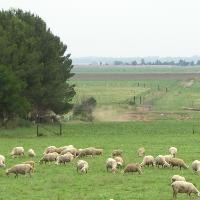
(BRUSSELS) – EU Member States representatives endorsed Monday a deal to overhaul existing rules on organic production and labelling of organic products, provisionally agreed with the European Parliament in June.
The new EU rules set more modern and uniform rules across the EU with the aim of encouraging the sustainable development of organic production in the EU. They also aim to guarantee fair competition for farmers and operators, prevent fraud and unfair practices and improve consumer confidence in organic products.
The agreement was welcomed by Agriculture Commissioner Phil Hogan as “another milestone for the organic sector, which ensures that this important and rapidly growing sector can continue to expand with clear rules and can be assured of being on an equal footing with producers from non-EU countries who export their organic produce into the EU.”
Europe’s organic sector is worth around EUR 27 billion, and has grown by 125% over the last decade.
“We must support this growth by ensuring that the sector operates with appropriate legislation,” added Mr Hogan, “This growth will be helped by smaller producers, who will now be allowed to join group certification schemes so as to benefit from lower certification costs. Moreover, organic farmers will now have access to a new market of organic seeds which will improve biodiversity, crop sustainability and will boost innovation.”
The new rules put an end to the current à la carte system of exceptions. The same rules will apply to all organic producers and products sold in the EU, whether produced domestically or imported.
Tighter precautionary measures will also reduce the risk of accidental contamination by unauthorised substances. Consumers will also benefit from greater choice, as the new rules will cover a wider variety of organic food and non-food items than in the past (such as salt, cork or essential oils).
The agreement endorsed today by the Council will go to vote in the European Parliament. Once adopted, the new rules will enter into force on 1 January 2021. This will give enough time for producers, operators and trade partners to adapt to the new framework.
New rules on organic farming - background guide


